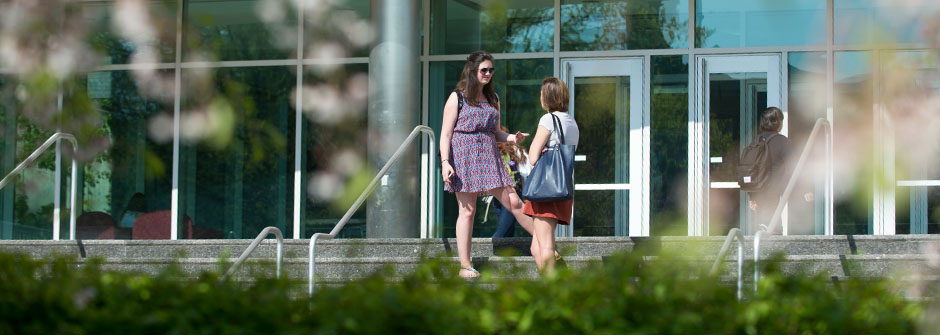
For Students
Seton Hall University's Core Curriculum invites students and faculty to join together to engage questions that are fundamental to human experience. The issues examined through readings, films and discussions in the three signature courses are central to the Catholic tradition of the University, although they are in no way exclusive to this tradition. People of all times and places have wrestled with issues of justice and injustice, the nature of love, the meaning and purpose of life, the nature of the good life and the nature of ultimate reality. Consideration of these ideas remains a staple of the human condition. Students at Seton Hall are invited to participate in this ongoing conversation through the University Core Curriculum. As a first step, we invite you to examine the requirements of the Core Curriculum, as well as the descriptions and syllabi, of the Signature Courses.
Why is the CORE Interdisciplinary?
The questions and texts approached in the Core Curriculum cannot be adequately comprehended within a single department's capacities to address them. Rather, they have a bearing on the methods and subjects of many academic departments and schools. They stretch from themes fit for the School of Business - such as "what is the meaning of human labor?" or even the particularly daunting "what ought I to do with myself?" - to questions one finds debated in the Philosophy department, Biology department and the School for Diplomacy and International Relations. For these reasons, the Core Curriculum is justifiably university-wide. This is true of both the subject matter of the Core courses and the faculty who teach them, who are drawn from across the university. Finally, as a liberal arts institution, Seton Hall is committed to the full breadth of students' educational development, from the arts to the sciences to the social sciences. These areas are all represented in the works studied in the Core courses.
How does the Core Curriculum distinguish Seton Hall from other universities?
Seton Hall University's new Core Curriculum is not the usual curriculum, meaning not the usual core à la carte. The Core Curriculum is designed to provide all incoming students with a common experience throughout their college careers, and seeks to foster a sense of community by linking a student's first-year Signature Course, Journey of Transformation, with a student's University Life course. By linking the courses, students forge a network that allows them to share their unique perspective on common material. This peer network supplements classroom discussion and proves to be invaluable in helping students understand what is admittedly difficult material (these questions and texts are timeless for a reason).
At Seton Hall, we want student's education to be a rich and holistic experience. We are, "a home for the mind, the heart and the spirit." We encourage students to take Service Learning Labs. These are courses where, by engaging in various volunteer experiences, students get to make the practical connection to the philosophical and ethical ideas they have studied in the Core Courses. Service Learning Labs involve spending about 20 hours, spread over one semester, at a partner school or non-profit agency. Students engage in a range of mentoring, tutoring, or project-based work, and will have the opportunity throughout their time at Seton Hall to progress up the ladder of service to career-building opportunities.
For these reasons, Seton Hall University's Core Curriculum offers students a fruitful, unique and community-generating experience of reading core texts and considering universal questions.
Advising Information
Students may seek advisement from the Director of the Core Curriculum (nancy.enright@shu.edu) or from their academic advisor.
Catalog Information for Incoming Students
Information for Incoming Freshmen
Full-time freshmen entering the University for the first time in or after Fall 2008
and expecting to graduate in Spring 2012 or later will be held to the graduation requirements
listed in the undergraduate catalogue including the 120-credit minimum requirement.
Information for Transfer Students
Transfer students entering the University in or after Fall 2011 will participate in
the new University Core Curriculum and will be responsible for the requirements in
the Undergraduate Catalog, including the 120-credit minimum requirement. There are
particular requirements according to class standing:
- Transfer students who have completed fewer than 30 credits: Transfer students who have fewer than 30 credits are responsible for the entire University Core Curriculum, including all three signature courses.
- Transfer students who have completed at least 30, but fewer than 60 credits: The first signature course will be waived for transfer students with at least 30, but fewer than 60 credits, but these transfer students will be required to take the second and third signature courses.
- Transfer students who have completed at least 60 credits or have an Associate's Degree: Transfer students who have completed at least 60 credits or have an Associate's Degree will have the first two signature courses waived. The third-year signature course and the major capstone are required of all students.

